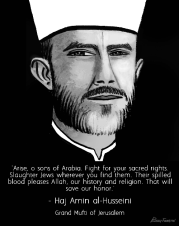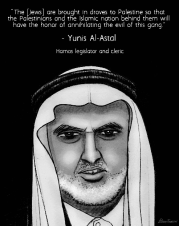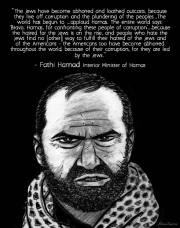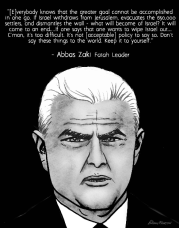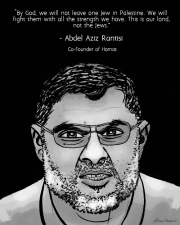Source Article Hudson NY
Europe: “You Are Entering a Sharia Controlled Zone”
Hezbollah Pitches Tent in Denmark
by Soeren Kern
A Muslim group in Denmark has launched a campaign to turn parts of Copenhagen and other Danish cities into “Sharia Law Zones” that would function as autonomous enclaves ruled by Islamic law.
The Danish Islamist group Kaldet til Islam (Call to Islam) says the Tingbjerg suburb of Copenhagen will be the first part of Denmark to be subject to Sharia law, followed by the Nørrebro district of the capital and then other parts of the country, the center-right Jyllands-Posten newspaper reported on October 17.
Call to Islam says it will dispatch 24-hour Islamic ‘morals police’ to enforce Sharia law in those enclaves. The patrols will confront anyone caught drinking alcohol, gambling, going to discothèques or engaging in other activities the group views as running contrary to Islam.
Integration Minister Karen Haekkerup told Jyllands-Posten “I consider this to be very serious. Anything that attempts to undermine our democracy, we must crack down on it and consistently so.”
The Call to Islam group promotes Salafism, a fundamentalist sect within Sunni Islam that espouses a literalist reading of Islamic scriptures and adheres to a conservative and highly regulated puritan lifestyle.
Salafism also seeks the destruction of Western democracy, which is to be replaced by a Universal Islamic Caliphate, a worldwide Islamic theocracy regulated by Sharia law.
In a statement on its website, Call to Islam asks: “How can we [Muslims] claim to be followers of the Sunnah [principles established by the Islamic prophet Mohammed] and defend the best Deen [doctrines of Allah], when we prefer to live among the infidels, be subject to their laws, emulate them and fail to differentiate ourselves from their kufr [camp of unbelievers]? How can we claim to love Allah and His Messenger when we are embarrassed to call for Sharia? How can we be indifferent to the establishment of Allah’s rule on Earth, which is a duty for every Muslim?”
The statement continues: “To work to establish the Caliphate is one of the biggest tasks of our time. And this task cannot be achieved unless we work collectively under an Emir [commander, general or prince]. Moreover, it is known that it is a duty to fight the evil that is prevalent everywhere around us. Man-made laws and rules are present today and it has now become a mandatory obligation for all Muslims to work collectively to rid the world of this great munkar [evil], democracy.”
Denmark’s TV2 public television recently filmed members of Call to Islam in downtown Copenhagen openly campaigning for the abolishment of democracy and calling on people not to vote in parliamentary elections that were held on September 15.
A video posted on the Call to Islam website asks: “Do you want to take part in establishing Sharia in Denmark? Or do you want to stand by? The choice is yours!”
Call to Islam in Denmark is emulating similar movements in other parts of Europe.
In Britain, for example, a Muslim group called Muslims Against the Crusades has launched a campaign to turn twelve British cities – including what it calls “Londonistan” – into independent Islamic states. The so-called Islamic Emirates would function as autonomous enclaves ruled by Islamic Sharia law and operate entirely outside British jurisprudence.
The Islamic Emirates Project names the British cities of Birmingham, Bradford, Derby, Dewsbury, Leeds, Leicester, Liverpool, Luton, Manchester, Sheffield, as well as Waltham Forest in northeast London and Tower Hamlets in East London as territories to be targeted for blanket Sharia rule.
In the Tower Hamlets area of East London (also known as the Islamic Republic of Tower Hamlets), for example, extremist Muslim preachers, called the Tower Hamlets Taliban, regularly issue death threats to women who refuse to wear Islamic veils. Neighborhood streets have been plastered with posters declaring “You are entering a Sharia controlled zone: Islamic rules enforced.” And street advertising deemed offensive to Muslims is regularly vandalized or blacked out with spray paint.
In Belgium, a radical Muslim group called Sharia4Belgium recently established an Islamic Sharia law court in Antwerp, the country’s second-largest city. Leaders of the group say the purpose of the court is to create a parallel Islamic legal system in Belgium in order to challenge the state’s authority as enforcer of the civil law protections guaranteed by the Belgian constitution.
The Sharia court, which is located in Antwerp’s Borgerhout district, is “mediating” family law disputes for Muslim immigrants in Belgium. The self-appointed Muslim judges running the court are applying Islamic law, rather than the secular Belgian Family Law system, to resolve disputes involving questions of marriage and divorce, child custody and child support, as well as all inheritance-related matters.
Unlike Belgian civil law, Islamic Sharia law does not guarantee equal rights for men and women; critics of the Sharia court say it will undermine the rights of Muslim women in marriage and education. Legal experts say the Islamic court will also undercut the Belgian state’s ability to investigate and prosecute perpetrators of so-called honor crimes.
Sharia4Belgium says the court in Antwerp will eventually expand its remit and handle criminal cases as well.
In Germany, the spread of Islamic Sharia law is far more advanced than previously thought, and German authorities are “powerless” to do anything about it, according to a new book about the Muslim shadow justice system in Germany.
The 236-page book titled “Judges Without Law: Islamic Parallel Justice Endangers Our Constitutional State,” which was authored by Joachim Wagner, a German legal expert and former investigative journalist for ARD German public television, says Islamic Sharia courts are now operating in all of Germany’s big cities.
This “parallel justice system” is undermining the rule of law in Germany, Wagner says, because Muslim arbiters-cum-imams are settling criminal cases out of court without the involvement of German prosecutors or lawyers before law enforcement can bring the cases to a German court.
In France, Islamic Sharia law is rapidly displacing French civil law in many parts of suburban Paris. The 2,200-page report, “Banlieue de la République” (Suburbs of the Republic) says France is on the brink of a major social explosion because of the failure of Muslims to integrate into French society.
The report shows how the problem is being exacerbated by radical Muslim leaders who are promoting the social marginalization of Muslim immigrants in order to create a parallel Muslim society in France that is ruled by Sharia law.
In Spain, Salafi preachers in the north-eastern region of Catalonia have set up Sharia tribunals to judge the conduct of both practicing and non-practicing Muslims in Spain. They also deploy Islamic “religious police” in Lérida and other Catalan municipalities to monitor and punish Muslims who do not comply.
In one case, nine Salafists kidnapped a woman in Reus, tried her for adultery based on Sharia law, and condemned her to death. The woman just barely escaped execution by fleeing to a local police station.
In another case, a Salafi imam in Tarragona was arrested for forcing a 31-year-old Moroccan woman to wear a hijab head covering. The imam had threatened to burn down the woman’s house for being and “infidel” because she works outside of the home, drives an automobile and has non-Muslim friends.
Back in Denmark, local politicians appear oblivious to the spread of Sharia law. In September, the city council of Copenhagen gave its final approval for the construction of the first official “Grand Mosque” in the Danish capital.
The mega-mosque will have a massive blue dome as well as two towering minarets and is architecturally designed to stand out on Copenhagen’s low-rise skyline.
Unlike most mosques in Europe, which cater to Sunni Muslims, the mosque in Copenhagen pertains to Shia Islam. The mosque is being financed by the Islamic Republic of Iran and critics say that theocrats in Tehran intend to use the mosque to establish a recruiting center for the militant Shia Muslim group, Hezbollah in Europe.
The Copenhagen city council says that who pays for building the mosque is none of its concern. But the Copenhagen mosque is, in fact, being built bty Ahlul Beit Foundation, a radical Shia Muslim proselytizing and political lobbying group run by the Iranian government.
Ahlul Beit already runs around 70 Islamic centers around the world, and has as its primary goal the promoting of the religious and political views of the Islamic Republic of Iran. Ahlul Beit is especially focused on spreading Islamic Sharia law throughout Europe including Denmark.
Soeren Kern is Senior Fellow for Transatlantic Relations at the Madrid-based Grupo de Estudios Estratégicos / Strategic Studies Group. Follow him on Facebook.

